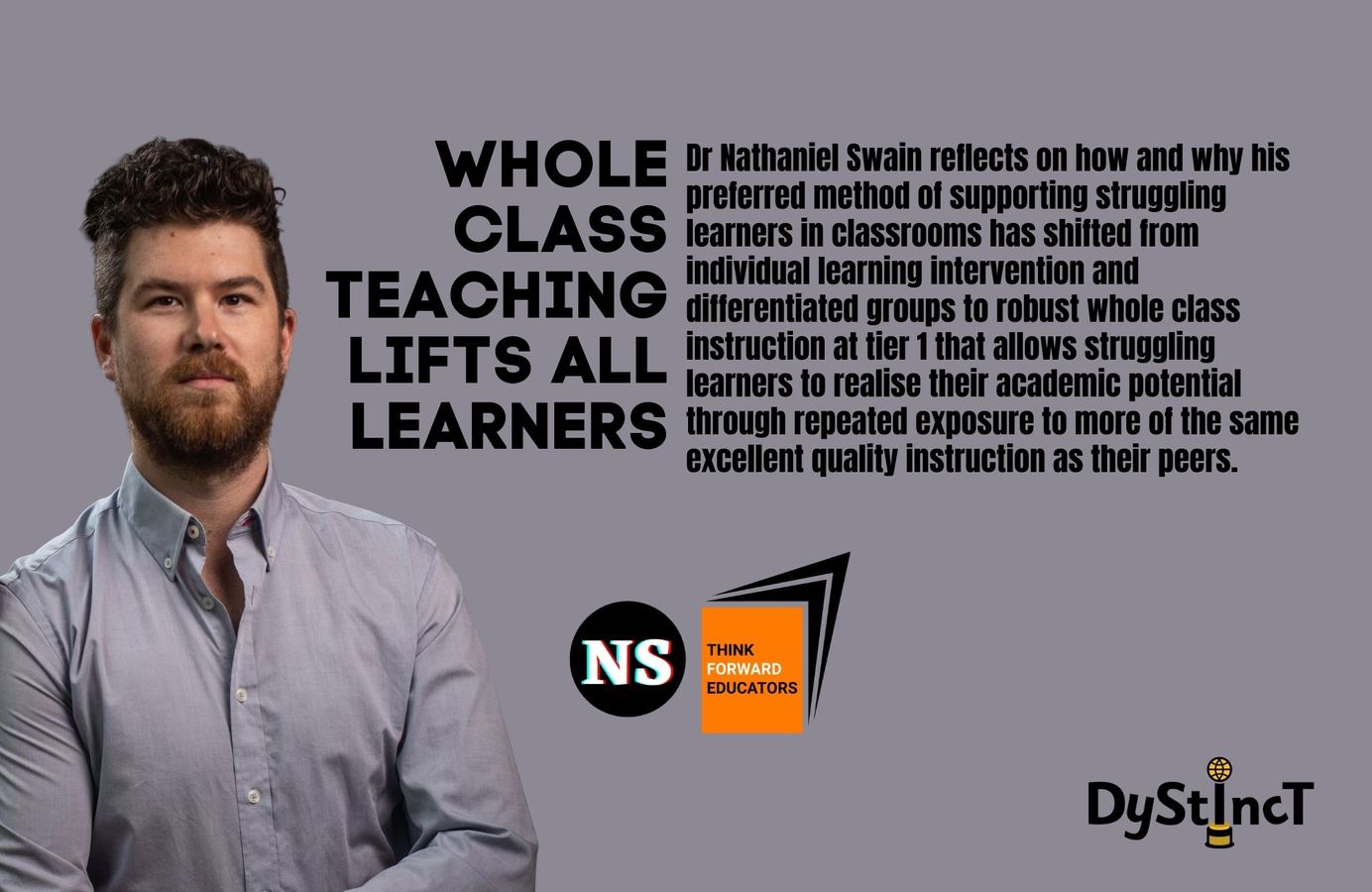
Issue 14: Whole Class Teaching Lifts All Learners | Dr Nathaniel Swain
Dr Nathaniel Swain reflects on how and why his preferred method of supporting struggling learners in classrooms has shifted from individual learning intervention and differentiated groups to robust whole class instruction.
Ali* is a 2nd grade student with dyslexia. She has been diagnosed recently, and her learning needs are still being fully understood by her family, psychologist, speech pathologist, and classroom teachers. She is about 18 months behind her peers in reading and spelling. Despite trying her very best, she still has a steep learning curve ahead of her.
As the classroom teacher, I am wondering how do I best teach her English. Should I group her with the handful of classmates who also have below-expectation literacy skills and take her out of the general instruction with typically performing peers?
Five years ago, my instinct would have pushed me towards "yes!"— individualised, and specialist support would be the best way to teach Ali. Today, however, I argue for the exact opposite.
Where my thinking used to be
I began my professional career helping the education system's most challenged learners. Children and adolescents with dyslexia, dysgraphia, language disorder, autism and intellectual disability and every combination of these diverse learning needs—these individuals were my focus. Ten years ago, after I finished my training as a speech-language pathologist, I loved nothing more than intimately understanding the learning profile of every child and designing individualised learning programmes, which needed to be delivered by a specialist with in-depth expertise.
My passion for helping such learners brought me into the Australian youth justice system, where I saw educational disengagement, family disadvantage, and specific learning disabilities all intersecting for some of the most vulnerable youth in the country.
This post is for paying subscribers only
SubscribeAlready have an account? Log in


